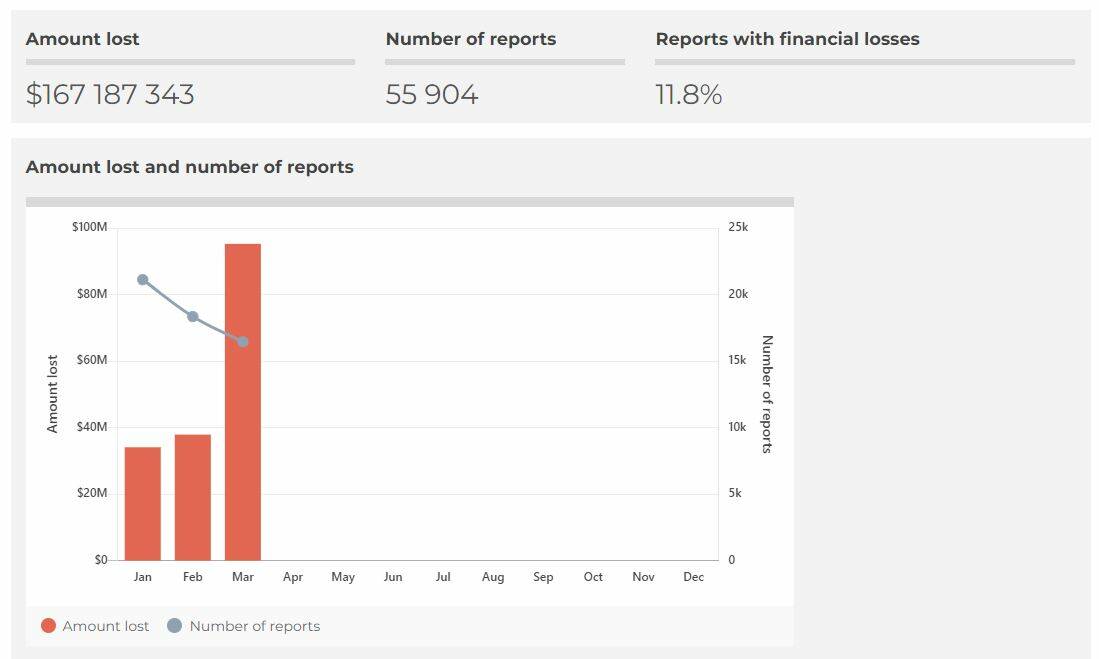Bega Police say they have been responding to an increasing number of fraud-related offences across the Bega Valley recently.
Subscribe now for unlimited access.
$0/
(min cost $0)
or signup to continue reading
Detective Sergeant Justin Marks said police had been investigating numerous instances of alleged fraud with both online and phone call scams reported.
Examples have included fake for sale notices on social media, dating site fraudsters scamming money, and scam phone calls and emails appearing to be from someone they're not.
Det Sgt Marks said he did not want to see anyone throwing away their well-earned finances to scammers purporting to be someone they were not, so prepared the following advice.

Cyber criminals are people who research you, ring you, access your social media and news articles.
They build a portfolio on you. They then compromise your identity to commit fraudulent offences to steal not only your finances but defraud the people who are also linked to you though the internet.
Government agencies will never ask you for your credit card details over the telephone or personal information such as passwords, bank account numbers and individual passwords to accounts.
If you receive an email from a trusted source asking you to pay a debt/bill it is always safe to check with the receiver that the details in the email are correct if doubtful.
Fraudsters attempt to build relationships with researched individuals who potentially have access to financial accounts, they often use a combination of phone calls and hacked emails.
A hacked email is when an offender can port a business or personal email account without the users knowledge and then use this account to send invoices for monies owing.
These invoices appear genuine from the outset, but the criminals alter the financial institution details, such as the BSB and account numbers and you unwittingly are paying large amounts of your own money into a cyber criminal's account.
Check with the author that the details on any email or invoice are correct before transferring money.

I am finding that the fraudsters will open an account using another person's stolen identity and when the money has arrived in that account it is immediately transferred to another account, a lot of the times overseas.
The task of reimbursing your lost finances is near impossible when this occurs.
Consider changing your passwords frequently. Consider long passwords.
Cyber criminals have systems to identify passwords so the longer and more complicated the password the harder it is for them to compromise it. Cyber criminals can guess weak passwords such as your name and date of birth.
Many people receive emails where the unknown sender requests you open a link.
It is important to recognise and avoid phishing emails.
If you receive a seemingly innocent email look for spelling mistakes and pronunciation, look at the tone and style.
Does the tone, writing style and email signature of the sender match what you'd expect from this person? Is the sender asking you for something they don't usually request? Does the sender address you by a nickname they always use? If the salutation is unusual, be suspicious.
Some marketing emails automatically insert your name, so review the whole email. Hover your computer's mouse over any hyperlinks to reveal the true email address and check that with the one that you have.
It is important to have safe web browsing practices.
If a web browser warns you about a problem, such as an error with the security certificate, do not visit this site. Cyber criminals can create fake websites to look exactly like legitimate websites.
Be vigilant when using Wi-Fi, only use trusted and secure connections. Some free access points allow criminals to collect your data and potentially steal your passwords.
If someone contacts you by telephone and requests a debt to be paid by pre-purchased cards, don't do this and hang up.
A lot of vulnerable people are receiving phone calls where they are asked to attend a retail store and purchase thousands of dollars' worth of pre-paid cards. The fraudster will then ring them back and ask for the card numbers and passwords.
These people use telephones with someone else's identity or use a pre-paid phone number. This is not a legitimate practice by any government or business organisation.

Similarly, if you receive a phone call saying that there is a warrant out for your arrest and to rescind this warrant you will need to transfer money via the sender by the internet, hang up, this is a scam.
If there is a warrant out for your arrest you can expect a knock on your on your door by me or one of my colleagues.
Be cautious purchasing items over the internet. My advice to you is that if it seems too good to be true then it is a scam.
Fraudsters will look at social media sites where items are for sale.
An example of this would be a tractor with photos attached that would normally sell for $50,000. These offenders will then clone this add and create a new one and offer the same tractor and photos for sale for $20,000.
Do your due diligence and ensure that you either sight the tractor and seller or have someone on your behalf do it if you can't.
We see a lot of time that people pay for commodities and then get asked for more funds, for shipping, insurance and so on, only to find that the cloned ad and their money has long gone.
If the seller is not local, speak to them on the telephone and do your research. Do a simple investigation yourself.
Obtain the name of the seller and contact number, use social media, and Google them and the phone number. Double check bank account details.
It is better to be safe than financially sorry.
Review Scamwatch.gov.au, a government initiative where you can look at current fraud methodologies and view comments from previous victims of fraud offences.
My advice to you is that if it seems too good to be true then it is a scam.
- Det Sgt Justin Marks
Be vigilant if you are on dating sites.
People wanting to meet you may not be the people you have intended to meet. What may start off with "I have found the perfect person" often involves you transferring a significant amount of money to the purported person.
The usual excuse is that they are overseas and want to come to Australia to be with you.
They need money for passports, visas and then they have a sudden death in the family preventing them from coming over. They will often tell you that the deceased has an inheritance in the millions, but it cannot be released until a large amount of money is paid into the estate to release the inheritance.
They will trick you into transferring money to them and they will continue with petty excuses until you have no money left to send.
My advice is to speak to the other party and get them to prove who they are, get to personally know them. If they want to meet and be with you then this would not be an issue.
Social media and applications are so advanced, so make a Facetime call to the person. Again, check all social media holdings and Google as much as you can.
The world of the internet and social media is growing leaps and bounds and as we all agree is making our lives so much easier.
We have the world at our fingertips which is fantastic, especially during the pandemic when we could ring/Facetime and contact long distant friends and families, not to mention virtually attending meetings, gatherings and on a sombre note farewelling a loved one through a virtual funeral.
We are asking you to be cautious on the internet and to look after yourself and your loved ones. If you have any concerns, please call us at any time.
Take care - Justin Marks (Detective Sergeant - Bega Police).
Our journalists work hard to bring you all the latest news and information. To support us please consider subscribing, which gives you unlimited access to ACM websites across the Far South Coast and The Canberra Times. To those who already subscribe, thank you. For anyone wishing to support the work we do, please subscribe by clicking here

